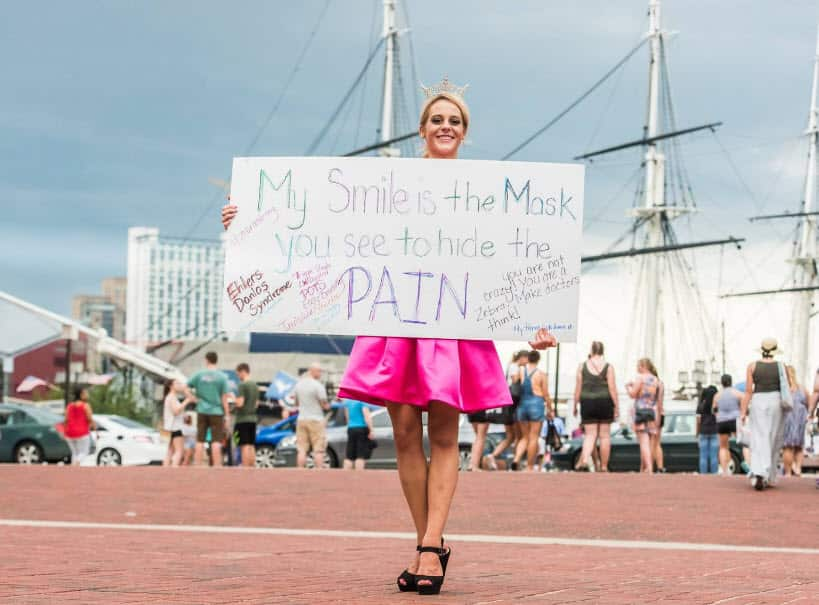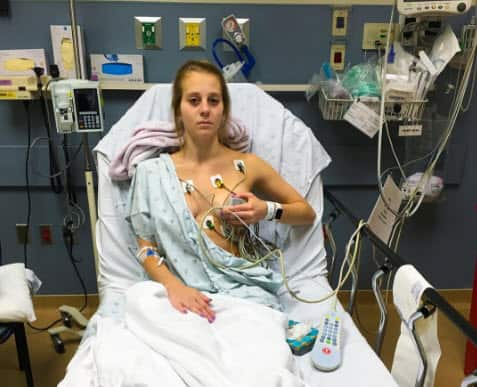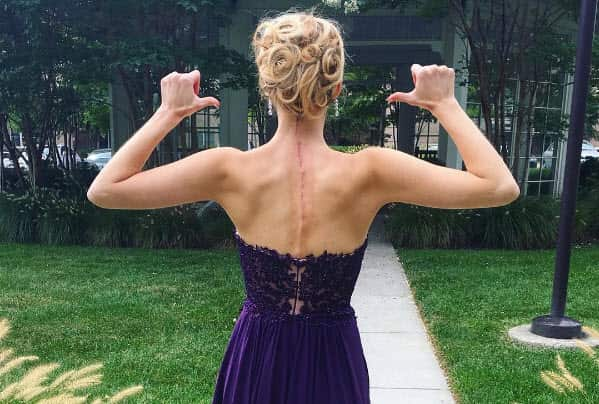With her crown on her head, Victoria Graham might look like any other beauty queen.
But the 22-year-old student from Manchester, in the US state of Maryland, has an invisible illness.
"It's not easy to stand on stage in a bikini in pageants," Victoria tells the BBC.
"I have a 25-inch scar that runs down my spine. And people can see it... like, really see it."

Victoria has a rare genetic condition called Ehlers-Danlos Syndrome (EDS), which affects her connective tissues - the 'glue' that supports the skin, tendons, ligaments, blood vessels, internal organs, and bones.
There are more than 10 types of EDS. Some types are very rare, but all together EDS affects approximately 1 in 2,500 to 1 in 5,000 people, both men and women of all racial and ethnic backgrounds.
Victoria's severe form means she has cranial and spinal instability. At one point the ligaments and tendons in her spine were so weak her brain was compressing the brainstem - a doctor compared it to balancing a bowling ball on top of a pool noodle. The slightest wrong move could have killed her.

Between 2014 and 2016, Victoria went through 10 brain and spinal neurosurgeries.
"I'm fused from skull to my bum - all the way down," she explains.
"I have a limited range of motion now, but I need to be stiff so my brain stem isn't under pressure and my spinal cord isn't being crushed."
She takes 20-25 tablets every two hours - a mixture of pain relief and essential supplements to ensure her body functions correctly.
Graham says that while she may look normal, some days she can't walk more than a few steps without losing consciousness or having her body crumpling on itself.

Diagnosed by a geneticist at the age of 13, after three years of trying to get to diagnose the cause of her unusual flexibility, Victoria learned there was no treatment or cure for EDS.
Until the age of 19, she tried to hide her condition from other people and "would rather have my legs dislocate that someone see me in a knee brace".
But now she has made it her mission to raise awareness of her own and other rare illnesses, and help those in a similar situation.
"I have no shame in admitting that I have a disability," she writes on Facebook.
"I have come to the realisation that this is the life I have been given, and I will live it to its greatest potential. I refused to be defined by a diagnosis; I refused to be confined by a disability; I refuse to live a restricted life because of the genes I was given."

She entered her first pageant in 2015, and late last year was crowned Miss Frostburg - a local title within the Miss American Organisation.
Victoria says her reasons for entering pageants in the first place is very simple: "Opportunities. Opportunities for my education; opportunities for my career; opportunities to help my community; opportunities for success."
Her platform goes by the tagline "But You Don't Look Sick: Making Invisible Illnesses Visible".
She says she has been shouted at for using a "handicapped permit", and urges others to consider that "just because I don't look sick, doesn't mean I'm not sick," she tells Babble.
She runs her own non-profit EDS support group, called The Zebra Network - a reference to the difficulty most sufferers experience in getting EDS diagnosed.
"In medical school, doctors are trained to think of the common thing when diagnosing through the phrase, 'When you hear hoofbeats, think of horses not zebras'," Victoria explains.
"So if a kid has runny nose or a cough they most likely have a cold rather than a rare form of cancer. But those rare things do happen and are often called 'medical zebras'.
"So we say, 'Think zebras, because zebras do exist'."

